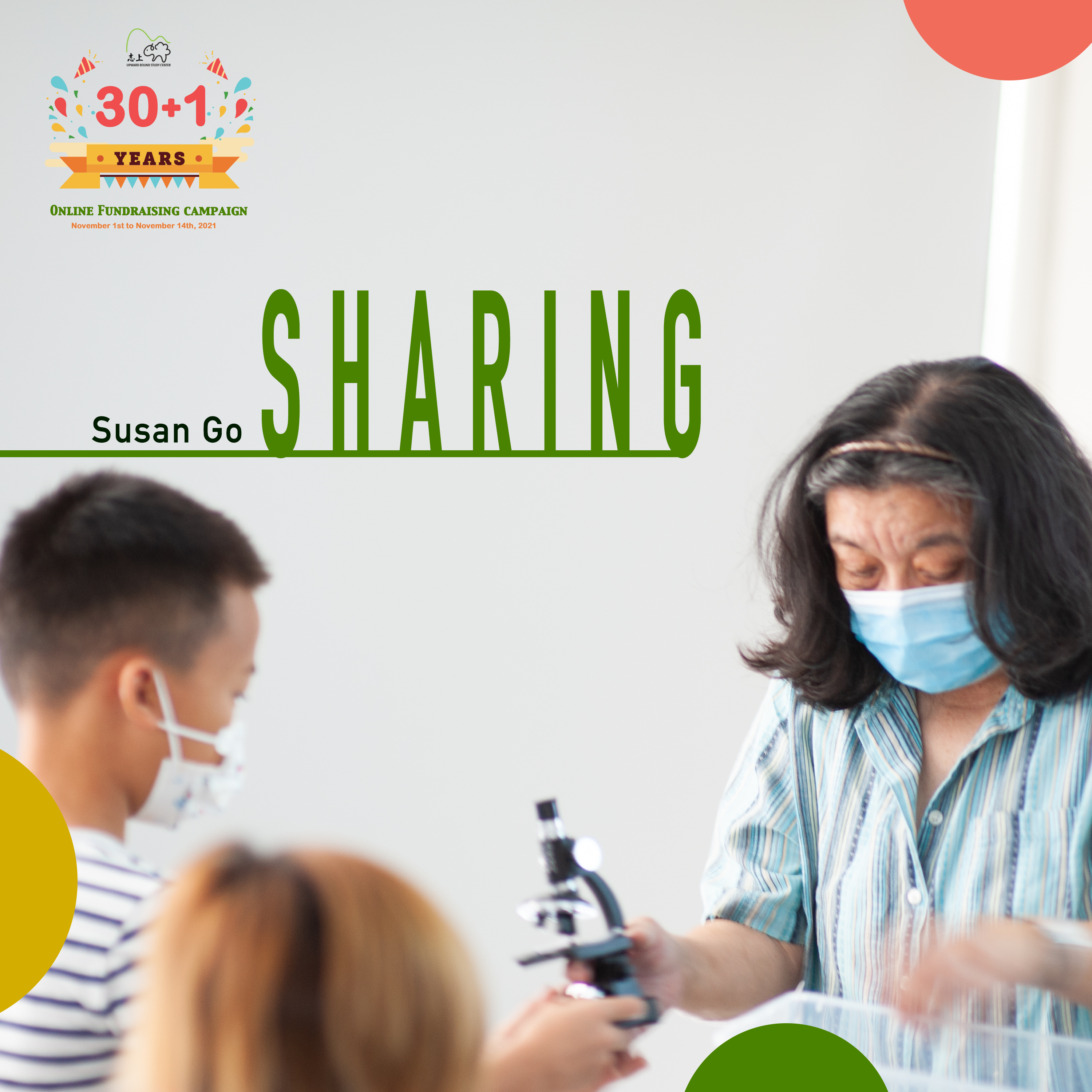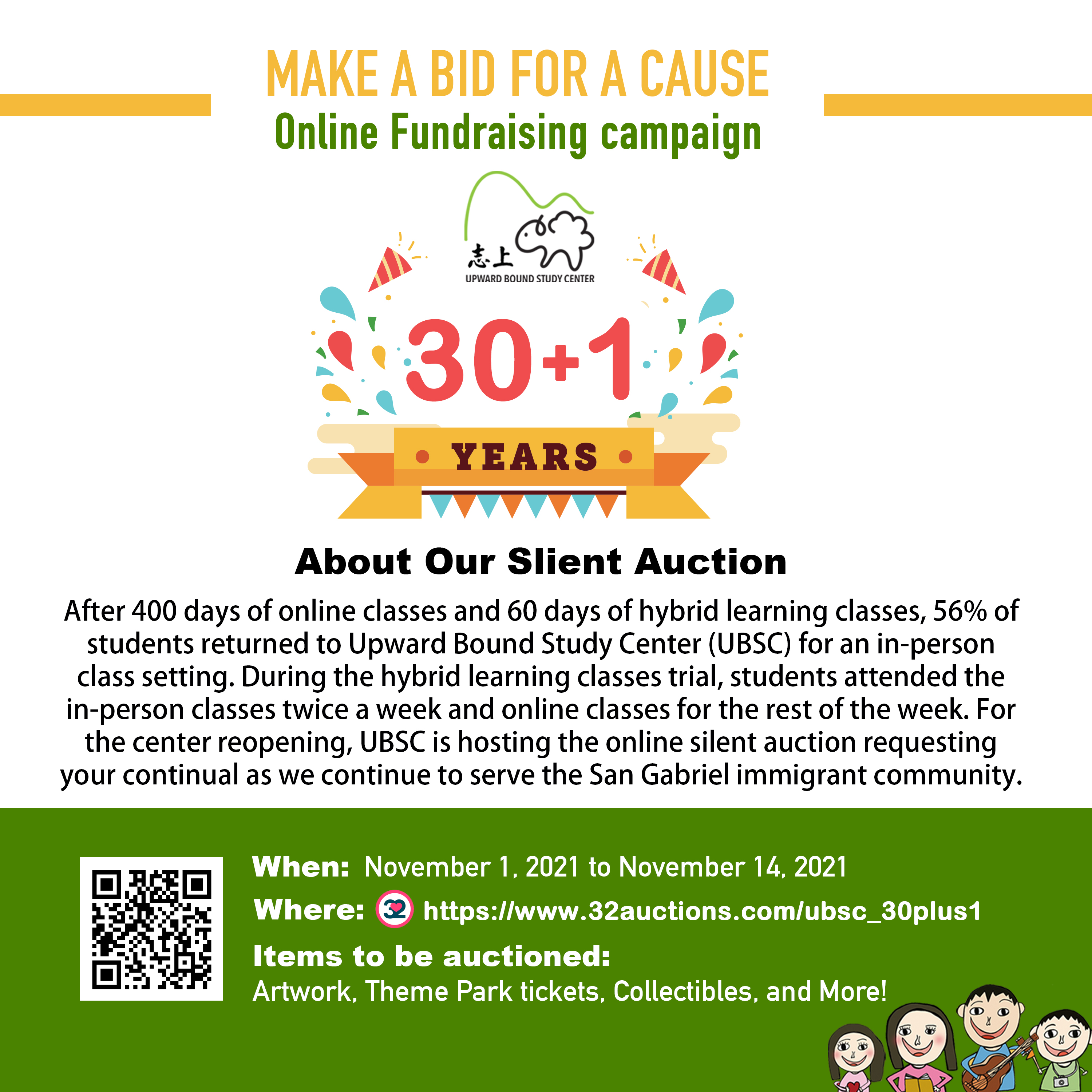30 Plus 1 Day 6
Day 6 of the 30+1 Anniversary Fundraising Event
Ms. Susan Go is one of our teachers at UBSC. Here’s her sharing about the summer school program

The Elementary UBSC Class: Summer 2021
Some educators think online learning is a difficult balancing act of ensuring meaningful learning experiences that meet the students’ needs. However, virtual learning was a positive experience for the UBSC elementary learners because they received support and interventions to develop their English and STEM (Science, Technology, Engineering, and Math) skills. Moreover, most parents of young children consider online learning the most convenient and comfortable learning environment.
It is possible for educators to teach learners digitally using traditional textbooks that nourished common core standards without watering down instruction. After extensive technology training related to zoom and using new tools provided by the Center , this educator taught academics through engaging learners in reading various literary and informational texts. The virtual lessons were routine: group oral reading, exposure to new vocabulary, analyzing the readings for comprehension, watching a video to enhance the lesson, participation in group discussions to build proficiency in English, and completing a writing activity.
Learners read scanned stories about how people created their business and became successful (e.g. Wells & Fargo, and Silas Fuentes, students in L.A. who grew a garden and sold their harvest, et al). They also read about the Gold Rush era and animal adaptations. Learners applied knowledge of language to academic tasks through expanding and enriching ideas, and class dialogues.
Due to the diverse grade levels, Khan Academy, a virtual differentiated math program, provided a comprehensive curriculum for the learners. Students were provided interactive assignments appropriate to their academic level. Assessments after each lesson provided progress reports.
Semiweekly in-person instruction began the third week of summer school. On these days, learners engage in enthusiastic and collaborative interactions while completing hands- on science investigations such as discovering how a mealworm selects a home. Students also participated in shared projects (building a birdhouse) and sports (soccer). The language was used to gain and exchange information and ideas.
With good organization, long-term planning, and parental support, remote learning was ideal for UBSC learners. Several advantages of virtual learning for UBSC learners were:
- They thrived learning in solitude away from a large group of peers who may trigger distractions
- Technology provided access to learning (visuals such as videos and written instructions) which motivated learners;
- Learners eluded racial profiling which they may have experienced from their peers at school
During the pandemic, remote learning was urgent and necessary. But remote learning is controversial. Students must be provided the options and resources that will allow them to learn in an environment that best fits the child’s learning style.

After 400 days of online classes and 60 days of hybrid learning classes, 56% of students returned to Upward Bound Study Center (UBSC) for an in-person class setting. During the hybrid learning classes trial, students attended the in-person classes twice a week and online classes for the rest of the week. For the center reopening, UBSC is hosting the annual fundraising drive requesting your continual support as we continue to serve the San Gabriel immigrant community. About Upward Bound Study Center: Upward Bound Study Center is a 501(c)(3) non-profit education organization that has served new immigrants in the San Gabriel Valley of Greater Los Angeles area through education and community formation since 1990. We strive to empower the community by providing its members with a place to learn, relate, and dream together.
